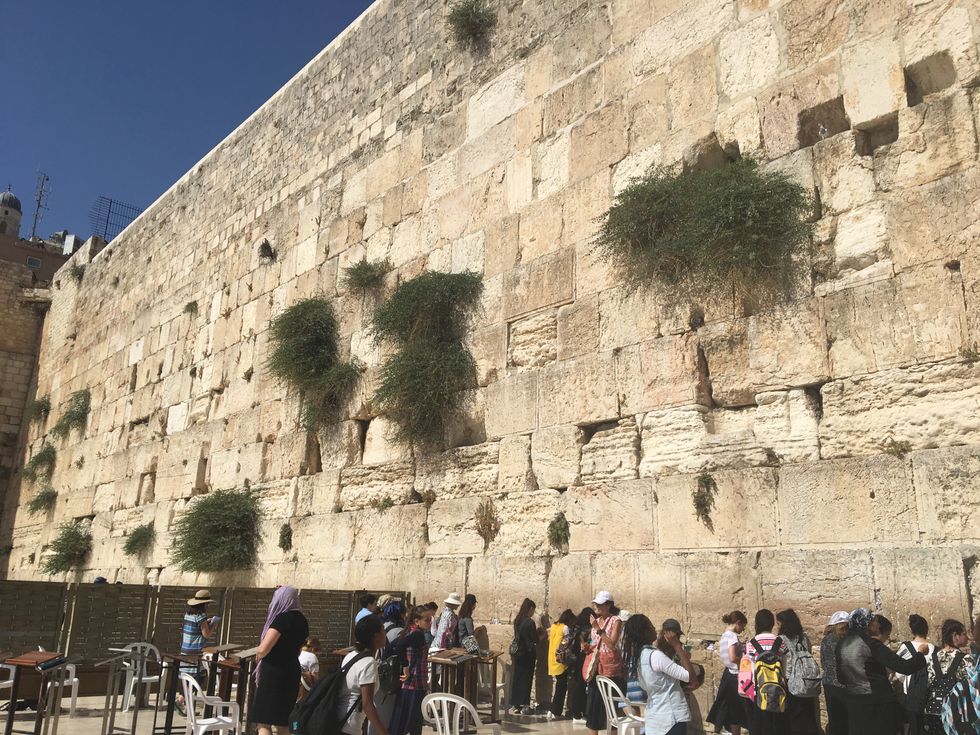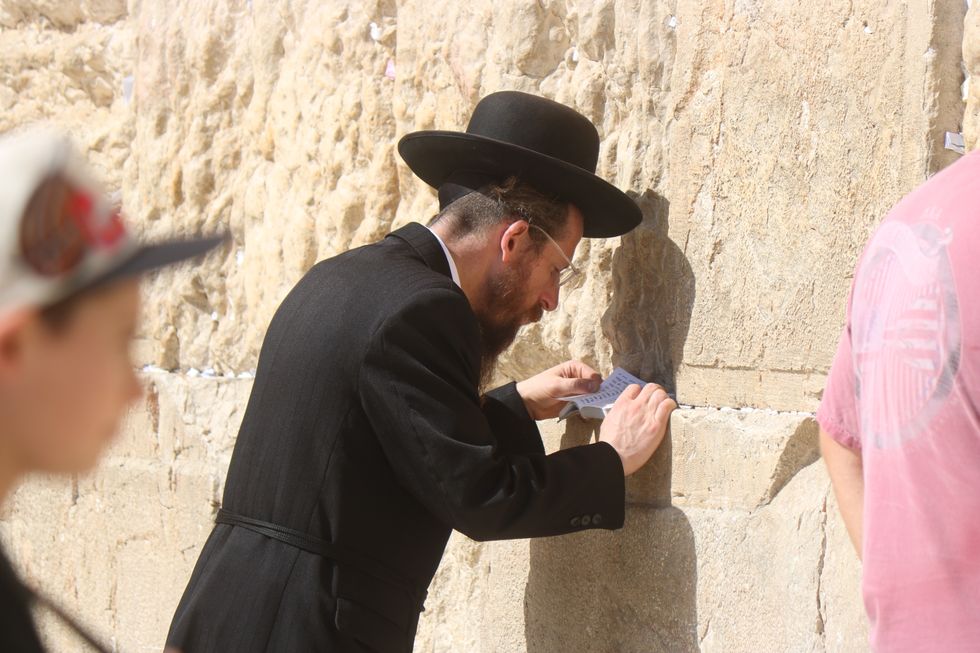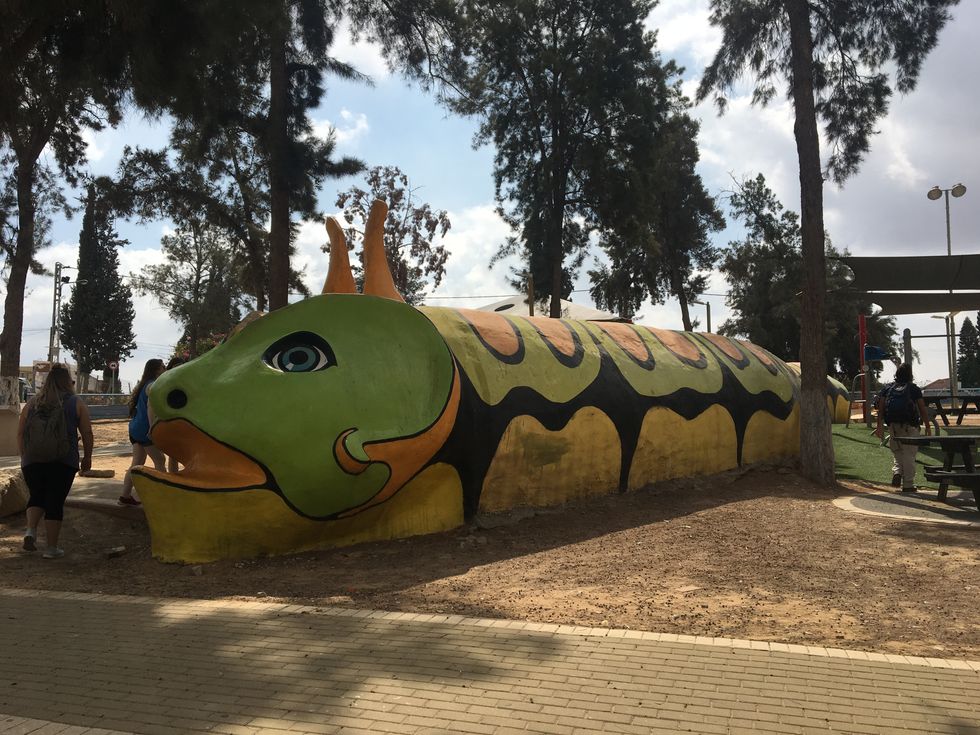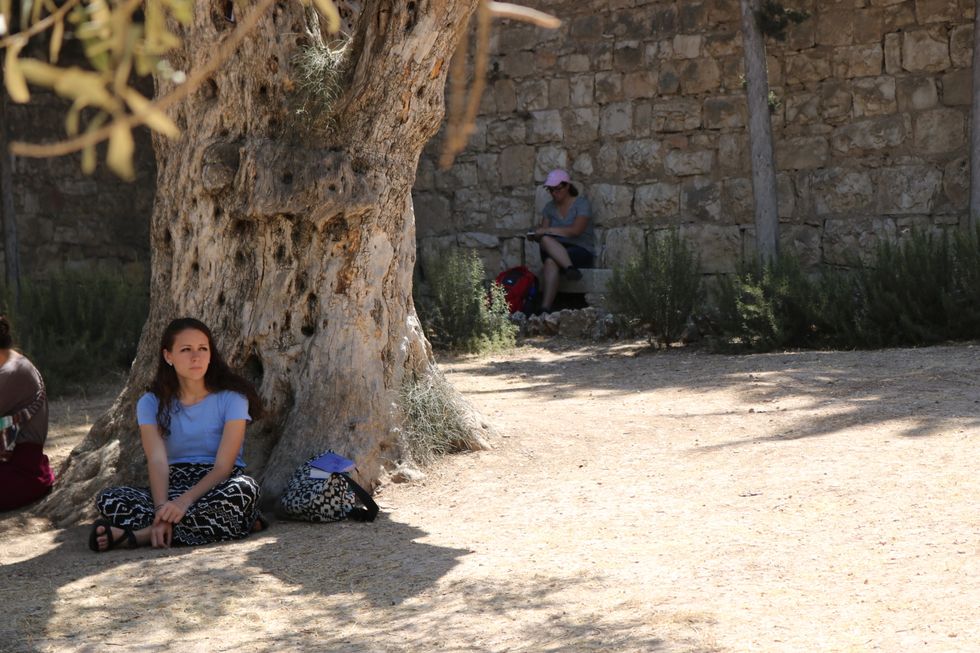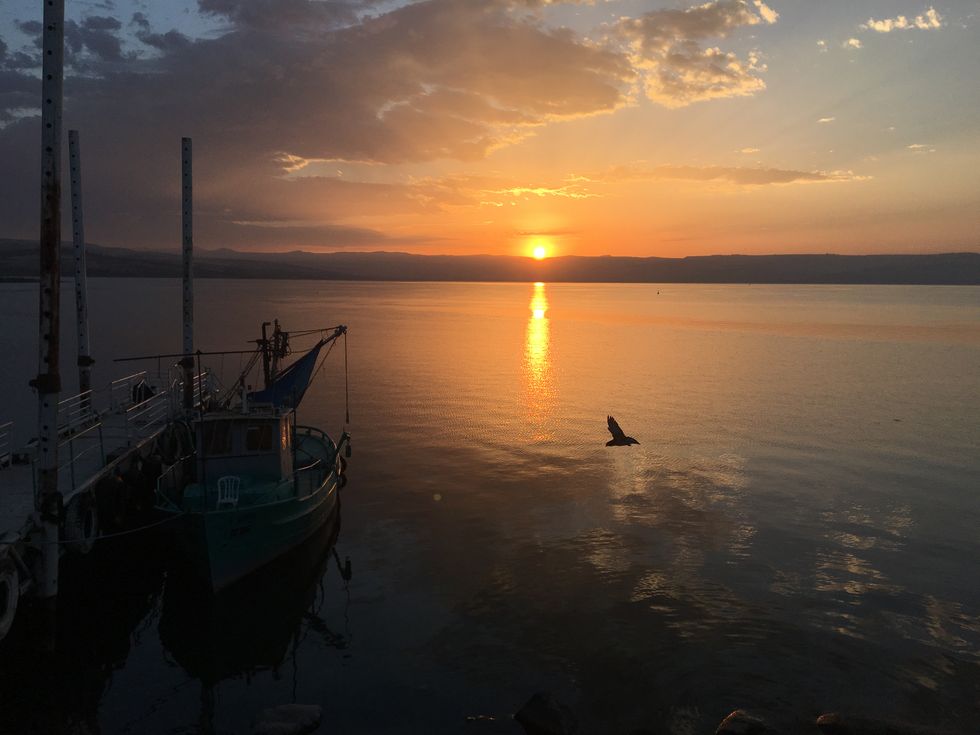My expectations of what I would encounter in Israel were pretty naïve. I admittedly anticipated a large sandy desert with little life, and though there were sections of desert, the landscape was often blossoming with abundant life. I expected to feel fear as I walked the country because of the violence and conflict in the area, but I felt strangely at peace. I assuredly did not predict the attire of the male Orthodox Jews in Jerusalem. However, I think one of the most shocking aspects of this trip was the rejection of the assumption that this trip would be filled with constant happiness. There were undoubtedly moments of overflowing joy, but there were also moments in which I found myself weeping or my heart breaking. And the joy came, but I first had to work my way through the waves of sorrow. Overlooking the Border of Syria, and comprehending the suffering of the Syrian people was a solemn moment. Making my way through Yad Vashim, the Holocaust Museum, and forcing myself to keep reading the letters of the Jewish victims and to continue watching the videos of the survivors broke my heart repeatedly and was almost unbearable. One of the main lessons that God taught me on this trip was that I needed to soften my heart, and learn to mourn over the things that broke his heart. This would ultimately lead to an enhanced appreciation of the joyous moments. God does not demand that we dismiss the trouble and suffering of this world; he cares. Rather, he uses the suffering to draw our eyes upward and our hearts close to him so that we may address the problems in our world, yet have a hope and joy that is eternal. But our hearts must be prepared for this. The verse “And I will give you a new heart, and a new spirit I will put within you. And I will remove the heart of stone from your flesh and give you a heart of flesh” took on a new meaning (Ezekiel 36:26 ESV). I would like to elaborate on several of the moments that God used to focus my thoughts on this lesson.
God used the Western Wall to prick my heart to the suffering of the people of Israel. I was able to visit the Western Wall twice. The first experience was during Shabbat and it was extremely crowded at the wall. As we were leaving, we had to wait to exit the gates of the Old City. We learned there had been a terror attack inside the Old City at the Damascus Gate, and the IDF soldiers would not let us through until they had confirmed that the situation was safe for us to move. It was horrifying to know that this happens frequently in Israel, and the Israeli people are surely resilient, but I was affected. This was not a normal situation to me. Yet even here in the midst of the sorrow and fear, God showed me a glimpse of himself. As a group, we gathered in prayer for the IDF soldier who was in critical condition and the civilians who had been injured. One of the members of our group even prayed for the men who had committed the attack, recognizing that we are all desperate for, yet undeserving of God’s grace. This moment was the beginning of my awareness of the depth of Israel’s suffering. It encouraged me to soften my heart and align my ears, and in due time to move from a place of mourning to a place of appreciation of any good or beautiful thing.
My second opportunity to visit the Western Wall was an unforgettable experience. It was a strange mix of celebration and mourning. Many of the groups were singing and dancing away from the wall, but those praying at the wall were weeping. I laid my hands on the wall, tucked my written prayer into a crevice, and began to pray. As I did this, I could feel the hem of the woman to my right’s dress brushing up against my ankles as she shook and prayed in a pitiful tone. The woman to my left was crying loudly as she read prayers aloud. I finished praying and sat off to the side, and I watched the people for a while. I was distressed and I called out to God, wondering if he heard the cries of his people. Almost immediately a flock of birds flew overhead and landed on the ledges of the wall. It was as if God was saying to his people “Look at the birds of the air: they neither sow nor reap nor gather into barns, and yet your heavenly Father feeds them. Are you not of more value than they?” (Matthew 6:26 ESV). I was assured that God hears his people when they cry out. In this moment of anguish, God showed his consistent concern for his people and he rushed to assure me of his sovereignty. Where his ears are directed may mine also listen. I think I was able to see the joy in this moment because I was willing to feel and recognize the agony that those at the Wailing Wall displayed, and I took part in their grief.
I continued to feel burdened in the Gaza Strip. We visited a Kibbutz called Kfar Aza that borders the city of Gaza. Before entering the Gaza Strip, we were told that if we heard an alarm that proclaimed “Red Alert” we would have fifteen seconds to run to the nearest bomb shelter. The children were afraid of the color red because of the alarm. A man who lived here named Illan led us around this place and told us stories of how he taught his children games that prepared them to run to the shelters in fifteen seconds. He discussed the effects on the children as they grew: the anxiety that was ever so persistent, and some even grew up with violence issues. We saw the collection of rockets that had landed in the area and the landscape that was marred with several bomb shelters on every corner. The playgrounds even had bomb shelters in the shape of a caterpillar and some were painted with cartoon characters in an attempt to comfort the children. I was distraught over the lives that these people endured, the fear that must never fade, and the agony over those that they had lost. Yet, still there was a brief detection of beauty in this encounter. A place that I saw God peeking through, even if Illan did not recognize him. Near the end of our tour our group stood at a fence wrapped in barbed wire overlooking a hay field that then faded into a view of the cityscape of Gaza. Someone asked Illan how he felt about the people of Gaza and his response will stay with me forever. He discussed how he refused to succumb to hate and that he empathized with the people of Gaza because they too were traumatized by Hamas. This display of love for those that resided on the other side of the border was a challenge to me and it exemplified loving one’s enemy even in this extreme condition. The joy that overcame me was immeasurable. However, I believe that I was so transformed by his story because I allowed myself to be burdened by his situation. I could easily understand how Illan could be filled with bitterness, anger, and vengeance. Instead he chose to love and forgive. What an amazing act of grace from a man caught in the crosshairs of such violence and despair.
Ultimately God first softened my heart towards the cries of the people, but then he revealed the need to have a heart of flesh towards him and the things I cling to for my salvation. The Garden of Gethsemane was bittersweet. We entered into a garden with trees that were hundreds of years old, and I sat at the base of one of these trees. I entered into a time of reading scripture and prayer as I read Matthew 26: 36-56. I began to weep as I came upon these verses “Then he came to the disciples and said to them, “Sleep and take your rest later on. See, the hour is at hand, and the Son of Man is betrayed into the hands of sinners. Rise, let us be going; see, my betrayer is at hand.” (Matthew 26: 45-46 ESV). I was sitting in the very place that my Savior was taken away to be crucified, the place that he prayed for another way besides the cross, and the place that he was betrayed. It was like the weight of the Gospel hit me all over again. Being in the place where this occurred certainly impacted me, but I heard the quiet voice inside me inquiring why I didn’t seem to feel the weight of the cross when I read passages such as this at home. I had hardened my heart to the price that was paid and the blood that was spilled. The waves of desolation that hit me in this place where Christ was taken made the joy of the resurrection more precious. His love for me became more evident and I am now learning his love more fully because of this encounter.
I am a firm believer that what breaks God’s heart should break our hearts too. And when we allow ourselves to feel the things in life that are difficult to feel, we then begin to notice the ever so small glimmers of beauty in the world. We begin yearning for God to heal our bodies and souls, and to do the same for others. We are searching for true joy because we have felt the pain, and it makes the beauty so much sweeter. We learn to notice the things that make us leap for joy and we cherish those moments; we take them seriously. I am not advocating for pessimism or for us to enter into some sort of depressed state of mind, rather let us refuse to ignore the cries of those that are suffering. Let us partner with those that are mourning and carry one another’s’ burdens. Let the cross impact our daily lives. I do not want to be enticed by this false sense of happiness that refuses to acknowledge the bad things that happen. We are often fed the lie that strength is without feeling and that weakness is somehow tied to empathy, emotion, or grace. I think that in a world as cruel as this, maintaining a soft heart is a great act of bravery. That means we recognize the pain, but we also notice and rejoice in the beauty whenever we have the chance. When we choose to soften our hearts and tune our ears to God, we can listen and respond to the earth that is groaning, yet have a joy that is real and true. Praise God for any piece of beauty or any glimpse of himself that he chooses to reveal, and let us be willing to receive it, even if it means we must endure pain first.
“Be soft. Do not let the world make you hard. Do not let pain make you hate. Do not let the bitterness steal your sweetness. Take pride that even though the rest of the world may disagree, you still believe it to be a beautiful place.”
Kurt Vonnegut Jr.


